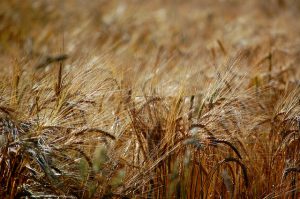Organic farming increases biological control of pests and yields in barley
 Photo credit: Tim Parkinson
Photo credit: Tim Parkinson
A recent study published in Landscape Ecology has reaffirmed that organic farming leads to greater yields and pest control by supporting natural predators. Furthermore, researchers demonstrated that these benefits associated with organic farming are maintained regardless of the surrounding landscape. Researchers sampled pests such as aphids and their predators, such as spiders, in conventional barley fields, new organic barley fields (organic for less than five years) and old organic barley fields (organic for 14 - 20 years) in Sweden. They also categorized differences in the complexity of the surrounding landscape. They found pest infestation was affected by the diversity of habitats and land use surrounding the farms (some pests increased with complexity while others decreased). However, pest control from beneficial insects was consistently higher on organic farms regardless of the surrounding landscape due to higher predation rates. “Our study shows that organic farming has the potential to promote the importance of web-building spiders in aphid predation independent of landscape complexity via positive effects on the abundance and composition of predator communities. A higher predation by spiders on aphids and lower aphid abundance will positively affect the barley yields that can be achieved under organic farming,” the authors wrote.


